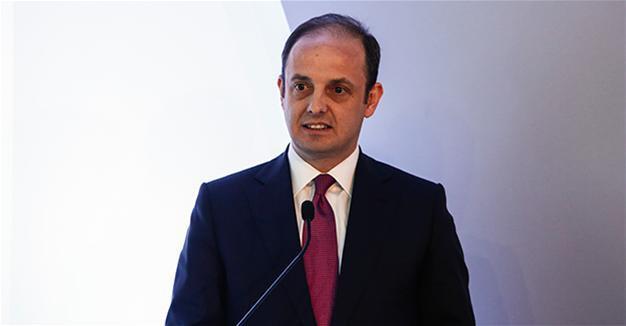Turkish economy remains resilient: Central Bank chief
ANKARA/WASHINGTON

DHA photo
Recent developments indicate the resilience of the Turkish economy and supportive fiscal and macro-prudential policies have mitigated the downside risks on economic activity, Central Bank Governor Murat Çetinkaya said April 20.Delivering a presentation to investors at the International Monetary Fund and World Bank Meetings in Washington D.C., Çetinkaya also stressed that currency volatility slowed shortly after the tightening monetary policies were applied, according to a statement on the bank’s website.
The contraction in the third quarter of 2016 proved temporary, he said, adding that leading data have indicated a mild growth in the first quarter of 2017 and economic activity is expected to gain pace in the second quarter.
“Recent macroeconomic developments indicate the resilience of the Turkish economy. Supportive fiscal and macro-prudential policies have mitigated the downside risks on economic activity,” he said, according to the presentation notes.
Contribution of exports to economic growth will increase throughout 2017, he added.
Turkey’s economy grew a faster-than-expected 3.5 percent in the fourth quarter of 2016, mainly due to a significant rise in consumption, data showed on March 31, bouncing back after last July’s coup attempt and underpinning hopes of a recovery less than three weeks ahead of a referendum. Growth in 2016 as a whole was 2.9 percent, above forecasts, according to data from the Turkish Statistical Institute (TÜİK).
He also noted that consumer price index (CPI) inflation increased sharply since last November due to base effects in food prices, higher oil prices, and FX pass-through.
The contribution of unprocessed food, energy and tobacco prices to CPI inflation rose dramatically in recent months and exchange rate pass-through has been the main driver of core inflation, added Çetinkaya.
“Inflation is expected to peak in April, before gradually coming down in the forthcoming period,” he said, adding that a tight stance in monetary policy would be maintained until inflation outlook showed a significant improvement.
Turkey’s annual inflation hit its highest in more than eight years in March, surging to 11.29 percent as the prices of food, transportation and alcohol all showed double-digit increases, official data showed on April 3, as chronic weakness in the Turkish Lira currency stoked a surge in consumer prices.
















